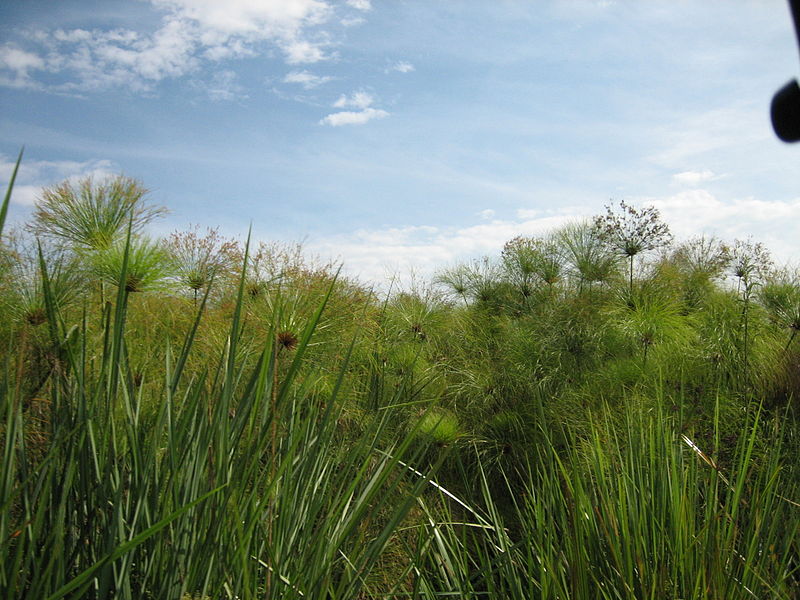 Wetlands contribute significantly to strategies mitigating for food insecurity in Uganda, finds a new study published in Agriculture & Food Security today. Wetlands provide vital nutrients for crop farming and ensure water availability during dry seasons which is important for irrigation. Because of this Ugandan wetlands have seen an influx of people using these resources over the last few years while climate has become increasingly unstable. Furthermore, wetlands are also used for income generation, for example by providing clay for pottery, reed and palm mats, baskets, beehives and cultivation of cash crops.
Wetlands contribute significantly to strategies mitigating for food insecurity in Uganda, finds a new study published in Agriculture & Food Security today. Wetlands provide vital nutrients for crop farming and ensure water availability during dry seasons which is important for irrigation. Because of this Ugandan wetlands have seen an influx of people using these resources over the last few years while climate has become increasingly unstable. Furthermore, wetlands are also used for income generation, for example by providing clay for pottery, reed and palm mats, baskets, beehives and cultivation of cash crops.
A lack of food security is a daily problem faced by nearly 1.4 million people in Uganda, with changing climate and continuing socio- economic strains this is likely to increase in the future. Coping strategies are varied, and may have differing impacts on the environment; the use of wetlands for resources is just one such strategy. In a comprehensive analysis of food security and related coping strategies in Uganda, Turyahabwe et al find that around 83% of Ugandan households suffer from food insecurity, and over 80% of study participants reported using wetland resources to contribute to household food security. These findings emphasise the importance of wetlands in Ugandan households, and the devastating affect that limiting access to this vital resource could have.
Wetlands are also of significant importance for biodiversity conservation, as many species rely on these areas for resources such as food and water, particularly during the frequent droughts. Because of this, conservation measures may be put into place such as restricting use of wetlands by humans, and creation of nature reserves to protect these important habitats. Conflict therefore arises between conservation policies and food security strategies regarding the use of wetlands.
With these two considerable pressures on wetlands, this research highlights the importance of developing a sustainable use of wetland resources which can benefit biodiversity conservation as well as ensuring that land can continue to be used to ensure food security.
Written by Rhiannon Meaden, Journal Development Editor, Agriculture & Food Security
- Guinea pig teenagers are highly domesticated - 9th April 2014
- Goats, the boffins of the farmyard - 26th March 2014
- Developments in Daphnia - 25th March 2014
Comments